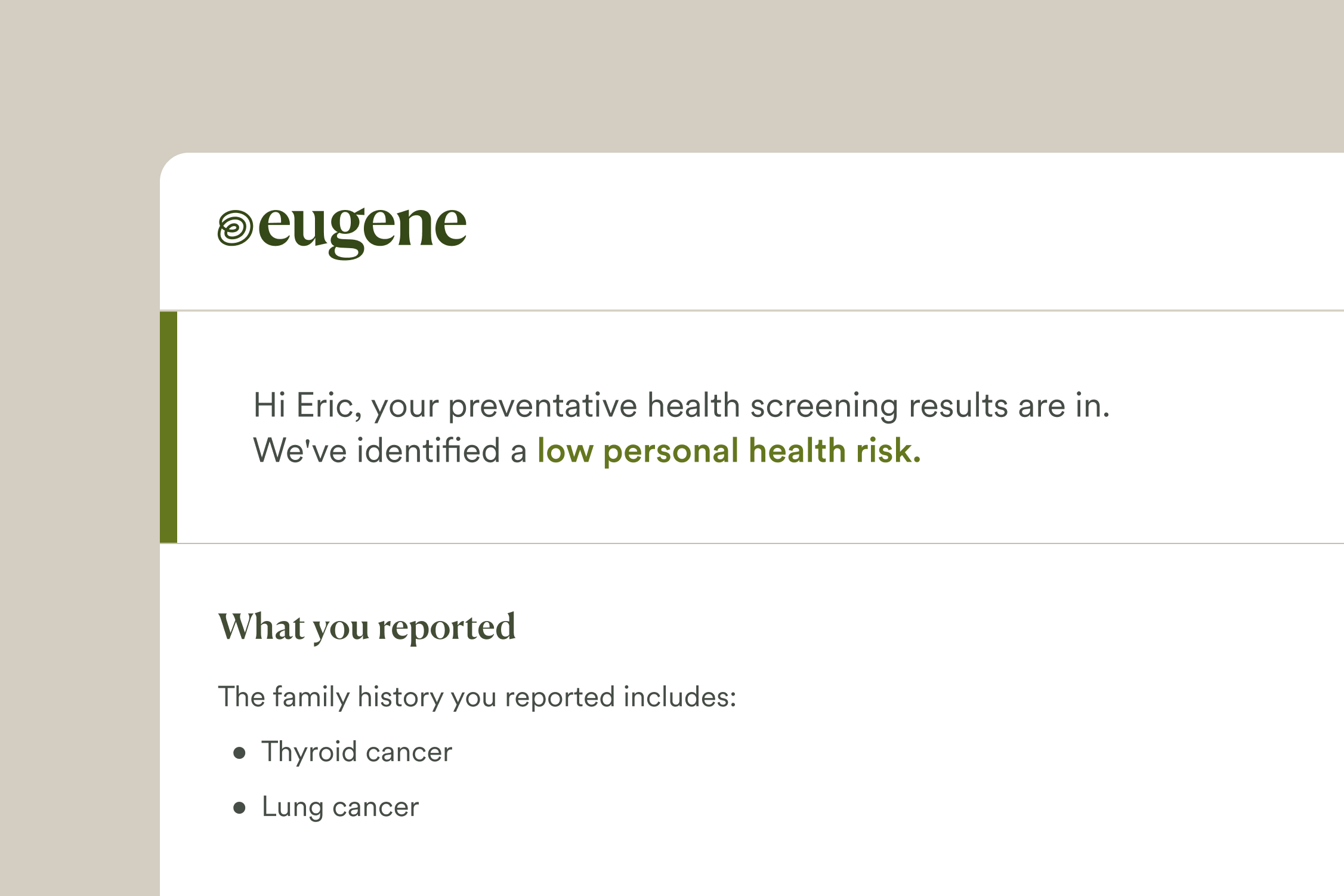
Proactive Heart Health Test
Proactive Heart Health Test
Regular price
$949.00
Sale price
$949.00
Regular price
This at-home genetic test screens 85+ genes that increase your risk of developing heart disease to help guide your personalised prevention and early detection plan.
What genes does the heart test screen for?

What can I do with the heart test results?

Is the heart test right for me?

About the lab

What our community is saying

Bridgette

Mason
What’s included




As seen in










